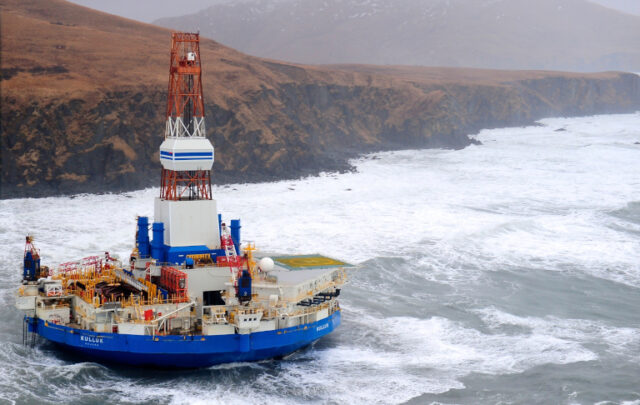What issues are critical to Pittsburgh’s future — now that we’ve kept the Penguins?
Merging county and city governments? Economic development? Shedding the "Smoky City" brand? Improved ethnic relations? Equality of opportunity? Transportation infrastructure? Innovations at universities and medical centers? All of the above?
Unfortunately, Pittsburghers would not place "energy preparedness" on this list, as Portland, Oregon, recently did.
Why energy, of all things?
Because the era of cheap abundant fossil fuels — oil, natural gas and coal — is drawing to a close. There is little doubt that the ramifications of the coming forced energy transition will alter major aspects of our lives — far beyond paying more for gasoline. As a result, reducing our reliance on fossil fuels is a fundamental challenge facing Pittsburgh and the world. Indeed, none of the other issues we face can be addressed without an adequate, stable supply of energy.
Readers may guess that we are referring to the fact that the world likely will reach the point of "peak oil" production within the next decade, after which we will experience a growing gap between the supply of and demand for petroleum. The price of oil and natural gas already have increased about four times since 1999, and North American natural-gas production peaked several years ago. Global supplies are expected to peak within the next two decades.
Coal, often touted as a long-term antidote to peak oil, poses grave risks with respect to global warming and other environmental hazards. Further, the cost of building coal liquefaction infrastructure to replace oil and gas will be enormous and take years to complete. Even should we turn more to coal, the demands from America’s growing population and energy-extravagant lifestyle will consume our reserves within decades.
What about substitutes? In his recent State of the Union address, President Bush did not mention the much-touted "hydrogen economy" as he has in the past because it is at present technologically impossible to achieve. Similarly, corn ethanol — which provides little energy relative to the energy invested in producing it — soon will be exposed for the frivolous dead-end that it is. Other potential substitutes also have severe limitations.
Does this sound alarmist?
Late last month, Reps. Roscoe Bartlett, R-Md., and Tom Udall, D-N.M., co-chairmen of the Congressional Peak Oil Caucus, announced the release of a Government Accountability Office report that outlines the nation’s vulnerability to peak oil and the federal government’s lack of preparation to deal with it.
But let us describe how Portland is preparing for its rendezvous with peak oil. (San Francisco, Seattle and several other cities also have begun such planning.)
In early March, the Portland city government released its Peak Oil Task Force report. To anyone familiar with the issue, the report covers no new ground, but it is well organized, devoid of political posturing and unflinching in its analysis. The report makes it clear that the finite nature of fossil fuels is a geological constraint on the growth of industrial civilization, and it explains why considerable lifestyle changes will be necessary if Portland’s citizens are to avoid a political, social and economic breakdown.
The task force accepts that the way we deliver health care, educate our children, house our families, travel, produce and distribute food and other products — all this and more — will have to change in the transition to a post-peak oil world. Its central aim is to "maintain community stability as volatile energy markets trigger conditions ranging from emergency shortages to longer-term economic and social disruption."
The Portland task force proposes cutting oil and natural-gas consumption in half by transforming how energy is used in transportation, the food supply, buildings and manufacturing. It proposes ways to maintain business viability and employment in an energy-constrained marketplace.
The task force also stresses the importance of building upon and strengthening Portland’s sense of community. This is an implicit recognition of the potential for civic breakdown and the gradual abandonment of democratic values in the face of true economic hardship.
Three supplementary notes:
First, as Portland understands, on the down slope of peak oil thousands of municipalities simultaneously will face severe hardships. Cities and regions will have to have their own plans in place, as it is unrealistic to expect sustained help from outside institutions, government or private.
Second, as humanity confronts its energy dilemma, the global population will be increasing, from the current 6.5 billion people to some 9 billion by mid-century. This will heighten global energy demand at a time of increasing scarcity.
Third, the mitigation steps for peak oil, population growth and global warming are complementary since all three will impose severe resource constraints and threaten economic and social upheaval.
What should we do here in Western Pennsylvania?
We hear a good deal about the need for boldness and innovation from the political, economic and cultural leaders of Pittsburgh. This is good public relations — inspirational, positive, invigorating. But can our leaders be courageous enough to face the consequences of peak oil as Portland has done?
Let us hope so. Let us hope that Pittsburgh — a Steel City built on a once abundant supply of coal — can recognize that the fair distribution and conservation of energy is vital to its future.
Dan Bednarz, Ph.D., is a consultant building a nationwide Consortium on Energy, Climate and Healthcare. He lives in Edgewood. danbpgh@verizon.net.
Ken Smail, Ph.D., Professor Emeritus of Anthropology, Kenyon College, Gambier, Ohio, spent the first 25 years of his life in Pittsburgh. smail@kenyon.edu.






